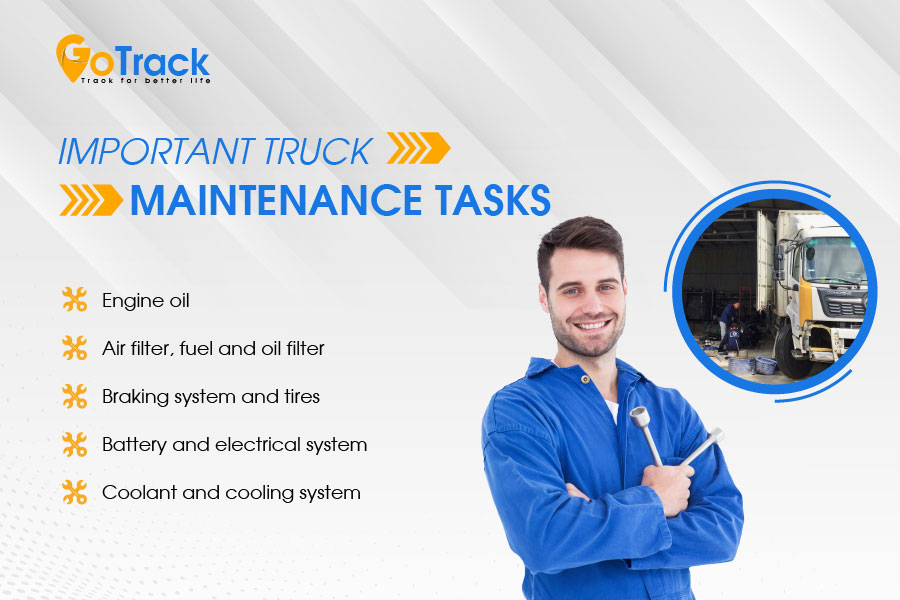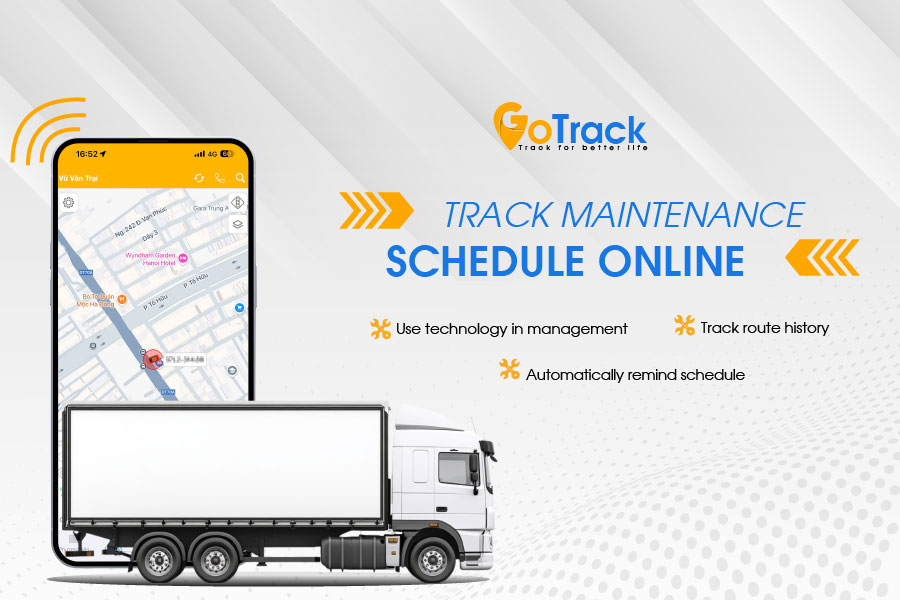For transport businesses using trucks, regular maintenance is a critical factor in ensuring smooth and efficient operation. On the contrary, if companies neglect truck maintenance, these vehicles will deteriorate quickly, break down, reduce their lifespan, and lead to costly expenses.
So, how can we maintain trucks effectively? GoTrack will share some important tips to help trucks operate sustainably in the following article!
Appropriate frequency of truck maintenance
The maintenance frequency depends on several factors, such as the type of truck, the brand, and the intensity of usage. Generally, for most common truck models, maintenance should be carried out regularly after every 8,000 – 10,000 km or every 3 – 6 months. In addition to periodic maintenance at service centers, drivers should also proactively check the condition of the truck if they have some knowledge about it. If any abnormalities are noticed during use, the truck should be taken to a repair service immediately.
Important truck maintenance tasks
Check and replace oil regularly
Engine oil helps lubricate and reduce friction, allowing the engine to operate smoothly. Failing to replace the oil regularly or using old, dried, or contaminated oil can cause the engine to wear out quickly and lead to serious malfunctions. When replacing the oil, make sure the service provider uses oil that meets the manufacturer’s standards for optimal performance.
Air filters, fuel filters, and oil filters
Air filters and oil filters are often filled with dirt, oil sludge, and other debris, which can obstruct airflow or fuel flow, reducing the truck’s efficiency. Therefore, it is important to regularly check these parts, clean or replace them if necessary, to ensure the truck runs smoothly and avoid unnecessary damage.

Brake system and tires
The brake system and tires of a truck are not only essential for its operational efficiency but also for the safety of the driver and other road users. Therefore, regular inspection and maintenance are crucial to ensure the truck operates smoothly, minimizing the risk of dangerous situations. Ensure that the braking force is stable, check tire pressure, wear levels, and tread depth to promptly detect any issues that may require repair or replacement.
Check the battery and electrical system
The battery provides power to the truck’s electrical systems, including lights, controls, and engine starting. It is essential to check the battery’s voltage levels, clean the terminals, and replace the battery on schedule to avoid issues with starting the truck or electrical system malfunctions.
Check coolant and cooling system
The cooling system helps prevent the engine from overheating during operation. Therefore, it is necessary to check the coolant levels regularly, top it off when needed, and clean the radiator to ensure the best cooling efficiency.
Applying technology for effective truck maintenance management
Managing maintenance manually can be inefficient due to the challenges that arise from managing a large fleet, with each vehicle having different usage frequencies. Without a scientific tracking system, companies might miss maintenance schedules, perform maintenance at the wrong time, or detect vehicle issues too late, leading to increased repair costs and reduced operational efficiency.
To solve the problem of truck maintenance for businesses, the optimal solution is to use intelligent tracking devices for the fleet. With capabilities like:
Tracking route history & scheduling maintenance
Fleet managers can monitor the fleet, track the historical routes, usage frequency, fuel consumption, etc., of each vehicle through a 24/7 online monitoring system. Based on this valuable data, the company can adjust the maintenance schedule for each vehicle and easily make adjustments as needed.

Automatic maintenance reminders
Modern tracking devices can integrate automatic maintenance reminders based on data set by the company. When it’s time for vehicle inspection or maintenance, the system will send notifications via an app or management website, reducing the risk of forgetting or mixing up maintenance schedules.
Digitizing the truck maintenance process also allows businesses to store necessary information about maintenance history, minimizing the chances of driver fraud in costs. Additionally, managers can analyze and make improvements if necessary, optimizing costs and ensuring higher operational efficiency for the business.
By using these technologies, companies can ensure that their fleet remains in good condition, reducing downtime, extending vehicle lifespan, and ultimately enhancing business profitability.



